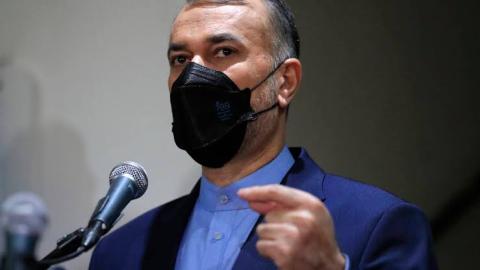Biden's Yemen Shift May be Bearing Fruit—and a Lesson for Washington


President Joe Biden's February announcement of an end to "all American support for offensive operations in the war in Yemen, including relevant arms sales," was welcome news. The Saudi-led coalition intervening against Iran-linked Houthi rebels in Yemen's civil war received material and intelligence support from both the Obama and Trump administrations. The coalition was also guilty of war crimes against innocent Yemeni civilians and has been a major contributing factor to the world's most acute humanitarian crisis. Without American backing, would Saudi Arabia be more inclined to withdraw?
Half a year later, the answer seems to be a qualified "yes." The Saudi government is increasingly eager to exit the conflict, and recent reports indicate Riyadh could be nearing an Oman-mediated exit deal with the Houthis. If that agreement can be accomplished, Yemen may finally receive humanitarian assistance it desperately needs, and eventually, peace.
That is not to say there's a straight line from Biden's announcement and a Saudi-Houthi treaty. We don't even know exactly what Biden changed—some reporting suggests it was far less than he implied, and a late February letter from members of Congress asking for details elicited little information from Biden's team. The administration response took three months to arrive, and when it did appear, ignored nearly all of the more than two dozen questions the lawmakers posed. It assured that the "United States opposes restrictions on the flow of commodities into and throughout Yemen." But it declined to answer whether the U.S. would supply equipment to the Saudi navy, which is integral to a de facto blockade that severely restricts the flow of basic commodities like food, which Yemen overwhelmingly imports.
The Biden White House also maintains a largely congenial relationship with the Saudi government, despite Biden calling it a "pariah" state while on the campaign trail. The administration this month offered a warm welcome to a Saudi prince, and on Biden's watch, the U.S. military presence in Saudi Arabia may well expand.
It is also undetermined that a Saudi-Houthi deal will indeed be reached. The rebels lately insisted on an end to the blockade as a humanitarian precondition to further negotiations, a concession Riyadh seems loathe to grant. Beyond that, Houthi negotiators are seeking a full exit of foreign troops from Yemen, while Saudi Arabia wants border security guarantees, potentially including a long-term Saudi military presence in Yemen and some assurance of limited Iranian influence there. The conflicts of perceived interest here are considerable, and even if they can be overcome, the question yet remains whether a truce will hold.
Finally, even if that diplomacy progresses, the blockade ends and the Saudi-led coalition withdraws, Yemen is unlikely to be immediately at peace. Much as turmoil will continue—or perhaps, for a while, escalate—in Afghanistan after American drawdown, so Yemen's civil war probably will not be resolved when the coalition departs. Foreign military meddling like this can easily prolong civil conflicts, but ending the intervention does not always mean ending the entire war. Post-intervention Yemen will still have internal division that will hopefully be settled diplomatically but may lead to more fighting instead.
For all that uncertainty, there is some hope here, as well as a lesson for U.S. foreign policy. The hope is in reports of diplomatic movement toward ending the blockade and Saudi airstrikes, which have a disturbing record of hits on civilian targets like markets, schools, hospitals and most notoriously a school bus. Even if the broader civil war continues, as is likely, ending these two pieces of the current conflict would be a major boon for the Yemeni public. Humanitarian aid logistics would improve, and famine could be averted. Absent that change, the United Nations forecasts more than 400,000 Yemeni children under the age of 5 could die of malnutrition in 2021 alone. This is an unspeakable moral horror and must be stopped.
The foreign policy lesson is in what Biden's shift has affected—and what it hasn't changed at all. On the positive side, it looks like withdrawal of some American support did push Saudi Arabia toward exiting the war. It's too soon to say, but in retrospect, we may be able to confidently judge that Biden's February move shortened the overall length of Yemen's strife, or at least shortened U.S. participation.

Yemeni officials on Monday condemned arrests and prosecutions by the Iran-backed Houthi militia directed against media, journalists and celebrities…

Yemen's warring parties are gearing up for new waves of conflict in 2023 amid a lack of decisive steps towards sustainable peace, adding to the suf…

The UAE will help to recruit doctors and deliver crucial supplies for hospitals in Yemen under a major healthcare drive. The Khalifa bin…